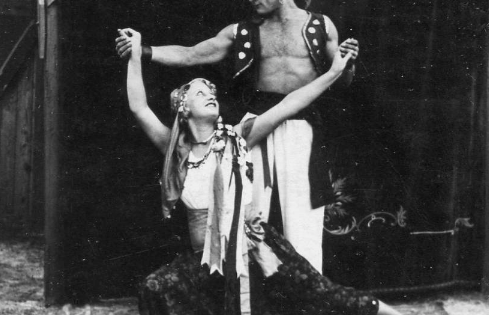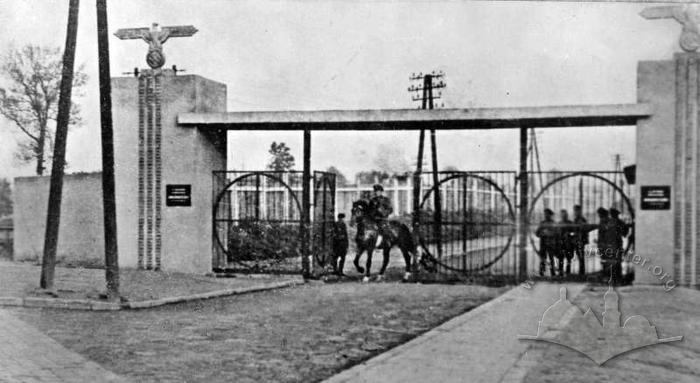Related sources:
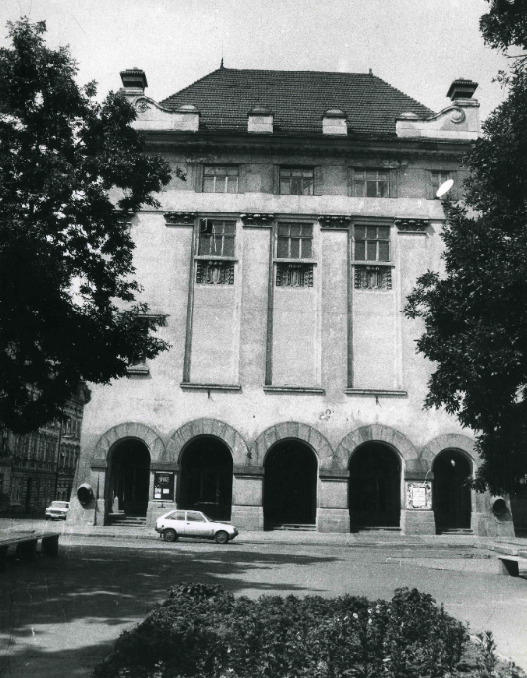
Excerpt from a 2013 interview with Lviv Puppet Theater actress: War, Gulag, Space Race
This is an excerpt from an interview with an actress in Lviv made in 2013. This actress talks about her wartime experience under German occupation and touches on the various cultural institutions she attended during the war. She went to the Lviv Opera Theater, run 1941-1944 by famous actor and director Volodymyr Blavatsky, who had worked with Kurbas’ Berezil and created a name for himself in avant-garde theater in Poland. He left for the west in 1944. She notes Lesia Kryvytska, an actress who worked in interwar Poland, Nazi-occupied Lviv, and then settled at the Maria Zankovetska Theater in postwar Lviv. She also mentions studying ballet at the Opera’s dance studio. Her mention...
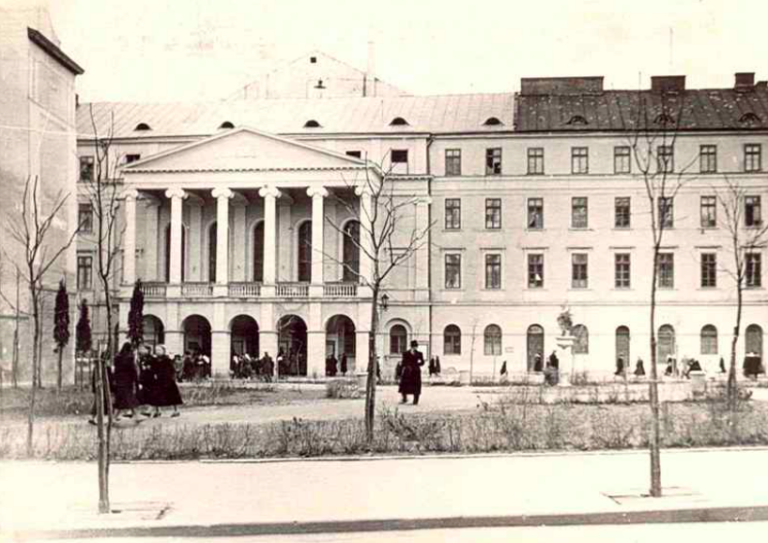
Excerpt from a 2013 interview with an actress, in Lviv: War, Power, Gender
This is an interview with an actress in Lviv who narrates her experience of World War II serving in the Red Army and her start in professional theater in Lviv. First, she tells us about her experience in the war: she served in Stalingrad as a communications operator and was deaf for 10 days from shelling. Her unit served with the First Ukrainian Front all the way to Lviv, where she ends up staying for the rest of her life. Note she never returns to any mention of her family again, so we can presume they did not survive the war. Her description of the war reveals the role that women played in...
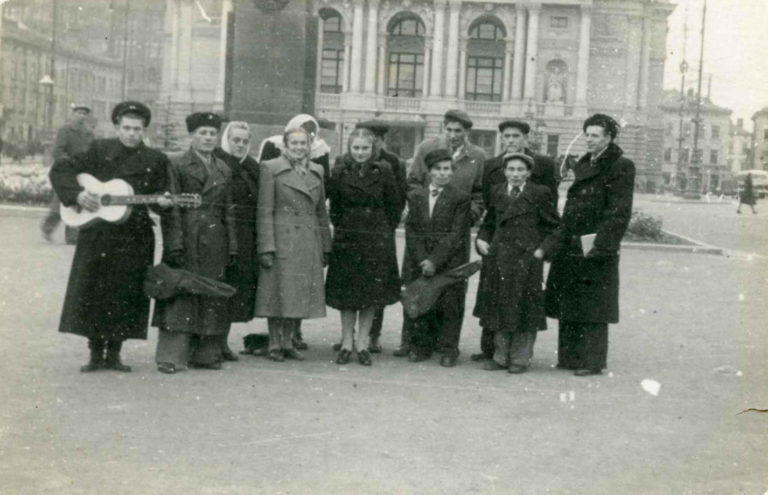
Excerpt from a 2012 interview with a female theater director: from Lviv to Moscow and back again
This is an excerpt from an interview with a theater director, one of the only women to work her way up through a male-dominated cultural sphere. She worked at several theaters in Lviv and became well-known in late Soviet and post-Soviet Ukraine. This source tells us about late Soviet theater, and the cultural world in general, and the different circulations and pathways between Lviv and Moscow. She mentions Khrushchev’s “Secret Speech” (actually at the 20th, not 22nd Party Congress) and the cultural opening that happened in the 1950s and 1960s. Note that she applied to theater school in Kyiv, but was not accepted - because she auditioned with verse by dissident poet Lina...
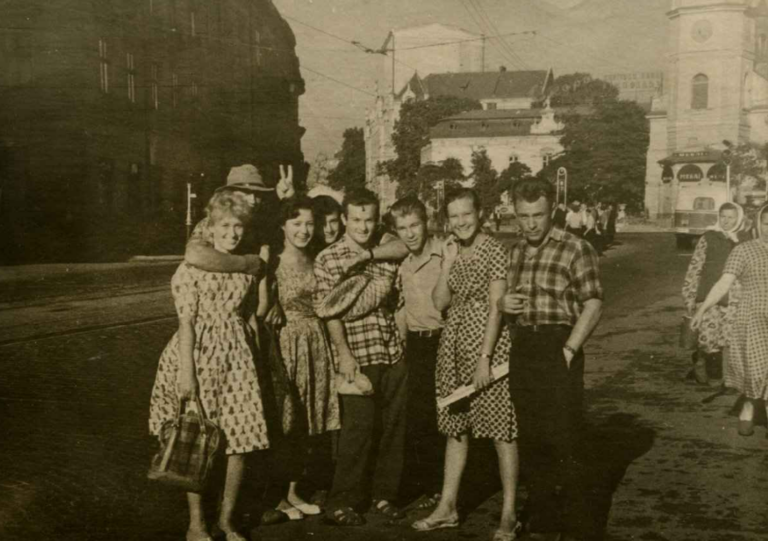
Excerpt from a 2013 interview with a lighting designer: Connections between the military and the theater, and between Moscow and Lviv
This is an excerpt from an interview with a lighting designer in Lviv in which she talks about her mother, Tatiana Zorina, who for many years was the zavlit, or literary director, at the Theater of the Carpathian Military District on Horodotska Street in Lviv. This theater, called by locals simply PrykVO, was a Russian-language theater under the management of the Ministry of Defense that operated in Lviv from 1954 until the Soviet collapse. The theater continued, in various forms, under various state institutions, shifting and changing, until becoming today’s Teatr Lesi. Several interviews from the UMA collection linked here reveal the history of this fascinating theatrical institution. Tetiana Zorina, as the source...

Family Correspondence from the World War I (Ivan and Ivanna Blazhkevych), 1917
Family correspondence of Ivanna Blazhkevych with her husband Ivan, who fought in the ranks of the Austrian army during the First World War.
Culture is one of the most complicated concepts, and yet we use the word all the time. This course is about how to think about culture, introducing you to the field of cultural history. Through this exploration into cultural history you will learn how to analyze and articulate how people ascribe meaning to various ideas, objects, and practices.
In our mini-course we will explore cultural interaction between Jews and non-Jews (Ukrainians, Poles, Russians) in the borderlands of the Habsburg and Romanov empires. This is interaction that may have been conscious or unconscious, and may have involved encounter, appropriation, negotiation, exchange and destruction.
This mini-course introduces you to a field: cultural history. Cultural historians question how to analyze, articulate, and define how people ascribe meaning to various ideas, objects, and practices. You’ll acquire a “toolbox” of analytic frames useful for research in any field of study or cultural practice. For our “case study” of cultural history, we will delve into the history of the arts in the Russian Empire and Soviet Union from the late Imperial to the Stalinist period. This is not a comprehensive course on the arts in Russia or the Soviet Union, by any means. Rather, we will focus on the world of the arts by examining social, political and economic structures as...


